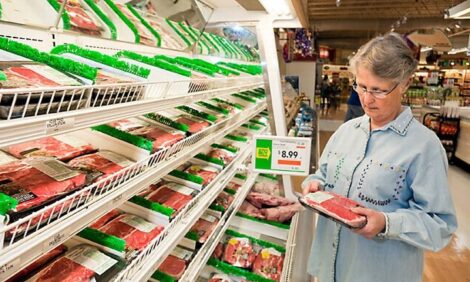



Large animal vets are in short supply
US - A large animal vet travels about 45 miles from South Berwick, Maine, to the No-View Farm in Ossipee to take care of owner David Strauch's livestock."I don't know what's going to happen if he retires and there's nobody to replace him," Strauch said.
He and his wife, Lareen, sell beef, pork and poultry from the farm at a farmer's market and a farm stand on the property.
He said the vet doesn't always make it for emergencies, such as a hard birth or when a cow eats something like barbed wire.
"We've lost animals before because we couldn't get a vet here in time," he said.
Workshops called "First Aid for Livestock," organized by the University of New Hampshire Cooperative Extension, are scheduled throughout the state to help farmers get by until a vet arrives. It's an effort to compensate for a shortage of vets who work with farm animals.
The information includes instruction on performing some routine health care procedures. The workshops also are intended to help livestock owners determine when they need to call a vet and what they can do themselves in emergencies.
There are more than 420 licensed veterinarians in the state, according to records from the New Hampshire Board of Veterinarian Medicine. About 35 vets work exclusively on large animals, but 25 only on horses. There are an additional 50 in mixed practice, treating both large and small animals. The 335 remaining work only on small animals.
Meanwhile, there are about 40,000 cows, 7,420 sheep and 8,000 horses in the state, according to the 2002 Census of Agriculture.
Tina Savage, Cooperative Extension agricultural resources educator, said horse owners have more options than livestock owners with farm animals like cattle, sheep and swine.
Large animal vets travel farther because there are fewer of them, and farms with livestock are becoming fewer and farther between, she said.
Also, most vets have their days planned out in advance, so they have to make time to add in emergencies, she said. It may take a while for a vet to arrive at a farm.
"If you don't know what to do," she said, "you could lose your animal."
She said many people don't have the experience and background to give animals basic care, particularly new farmers who might have a few animals in their backyard that they're raising for food.
Source: Foster's Online


